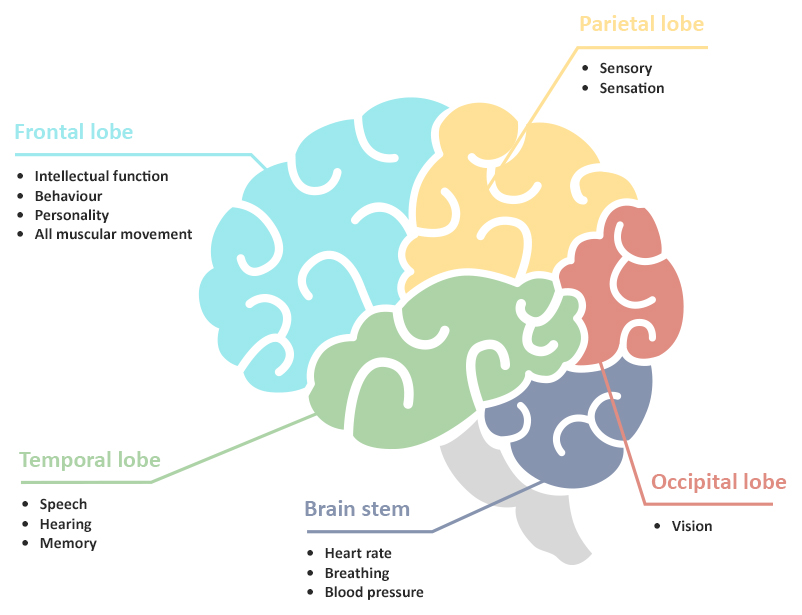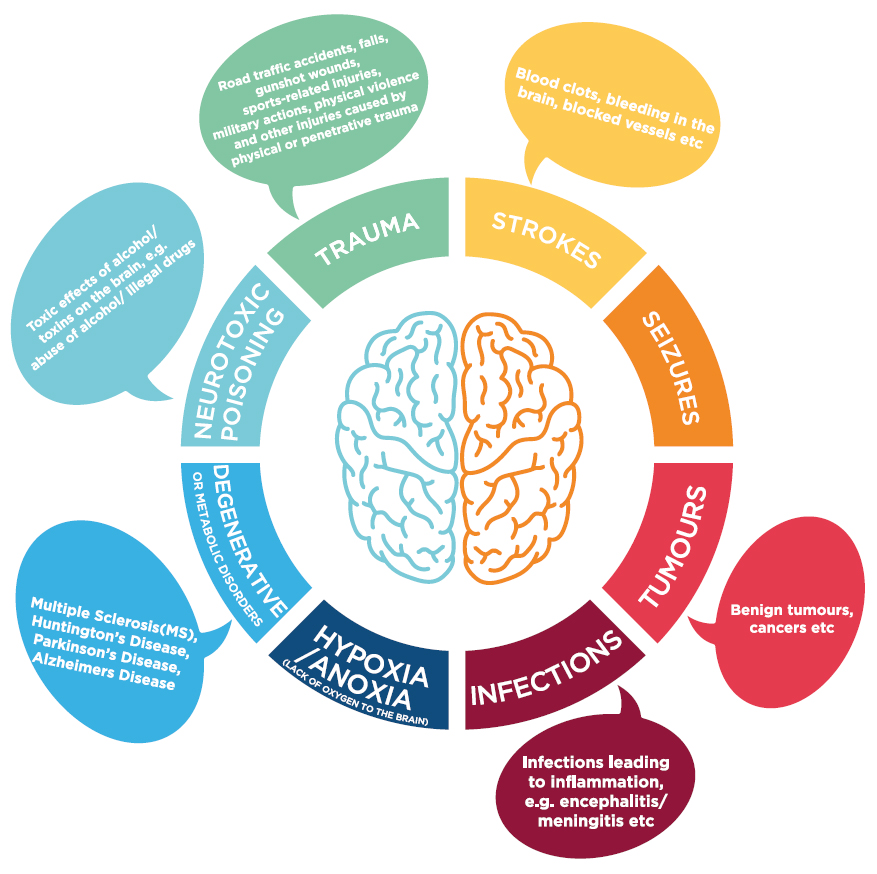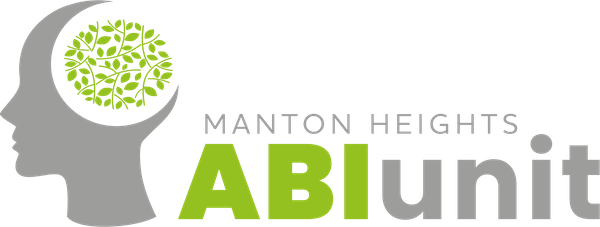Family and Service Users
The human brain controls everything we do. It keeps us alive by regulating breathing, circulation, digestion and the immune system. The brain controls abilities such as movement, memory, speech, vision, hearing, making decisions and our ability to get organised and get things done. It is through the brain that we are able live, experience emotions and express ourselves. The brain controls everything we say, do, think, and feel.

Designed by Freepik
Despite its encircling fortress of bone (the skull), the brain is especially vulnerable to physical insult and injury, which may affect its different functions and result in a number of temporary or permanent impairments.
Types of Brain Injury
Brain injury refers to the occurrence of an insult to the brain, causing temporary or permanent damage. It is often described as either traumatic or acquired, depending on the underlying cause.
The following definitions:
- An Acquired Brain Injury (ABI) is an injury to the brain that is not hereditary, congenital, degenerative or caused by birth trauma. Acquired brain injuries are caused by conditions including strokes, tumours, blood clots, seizures, infections (encephalitis, meningitis), anoxia (lack of oxygen to the brain), metabolic disorders, abuse of illegal drugs and neurotoxic poisoning.
- A Traumatic Brain Injury (TBI) is defined as a jolt or blow to the head or a penetrating head injury that disrupts the normal functioning of the brain. It is an insult to the brain caused by an external physical force. Causes of traumatic brain injuries include road traffic accidents, falls, gunshot wounds, sports-related injuries, military actions, physical violence and other injuries caused by trauma.

According to Headway, the UK's largest charity for brain injury: There were 348,453 UK admissions to hospital with acquired brain injury in 2016-17. That is 531 admissions per 100,000 of the population.
Severity of Brain Injury
Brain injury severity can range from mild to severe, depending on a number of factors. Severity is traditionally based on how long you lose consciousness, how your memory is affected and brain imaging results.
- A mild brain injury may be temporary; causing brief loss of consciousness, headaches, some confusion and short term memory loss.
- In a moderate brain injury, symptoms may last from 1-24 hours and are usually more pronounced.
- With a severe brain injury, the individual may suffer life-changing and debilitating problems and require more support to recover.
Although brain injuries are given an initial severity rating, this may not accurately reflect the impact of the injury on the individual and their family’s lives.
Impact on the Individual
A brain injury, whether acquired or traumatic, can have a devastating impact on the affected individual. It may result in impairments of cognitive abilities, physical functioning, communication abilities, behavioural and emotional functioning. Some of these problems include:
Cognitive Impairments
- Poor judgement or safety-awareness
- Memory or attention problems
- Impaired decision-making
- Difficulty processing information
- Inability to understand abstract concepts
Behavioral/Emotional Impairments
- Irritability and impatience, perhaps with aggressive behaviour
- Reduced tolerance for stress
- Inappropriate emotional reactions
- Tendency to be more self-centred with decreased empathy for others
- Depression or Anxiety
Physical Impairments
- Weakness or Paralysis
- Tremors
- Seizures
- Sleep disorders
- Changes in the senses (hearing, sight, touch etc.) and sensitivity to light, sound, and sensation
- Problems in swallowing (dysphagia)
Speech and Language Impairments
- Slurred speech (dysarthria)
- Difficulty understanding or producing language (aphasia)
- Difficulty in programming muscles for speech production (apraxia)
- Difficulty communicating thoughts effectively
- Problems interpreting social cues or using socially-appropriate language
- Loss of reading and writing skills
Impact on the Family
Brain injury affects not just the individual, but also the family, loved ones, close friends and other social networks of the individual. Family members may experience:
- Feelings of isolation and helplessness
- Restricted independence
- Loss of emotional support
- Frustration due to lack of knowledge
- Adjustment to changes in their loved one and role in the family
- Financial constraints
- Caregiver burden with risk of burnout
Family members are extremely important members of the health care team; providing comfort, reassurance, and support to the person with brain injury. The active participation and involvement of family members, caregivers, friends, and co-workers can significantly help the individual with brain injury successfully return home and to the community.
Brain Injury Rehabilitation
Brain injury rehabilitation is a marathon, not a sprint. Recovery from brain injury is a process that takes time. In recent years, the speciality of neurological rehabilitation has advanced in its understanding of ways to encourage and maximise recovery. Our team will use all available knowledge and techniques while caring for your loved one. While the most dramatic recovery often happens in the first year, progress is always possible as the brain continues to heal, learn, and practice. It’s important to never give up and keep working toward your goals.




